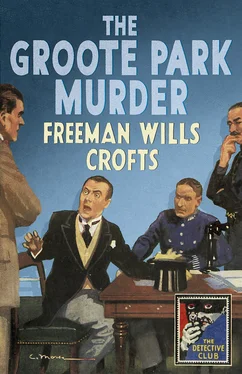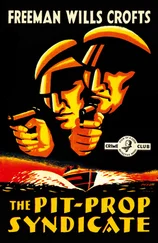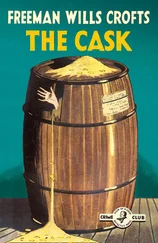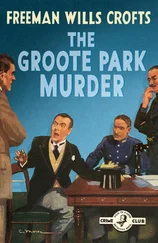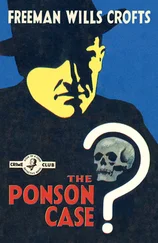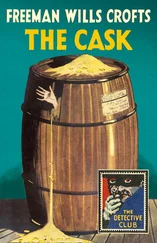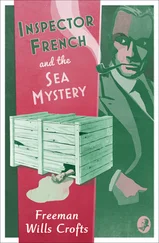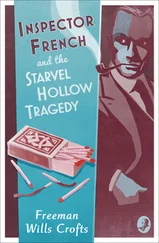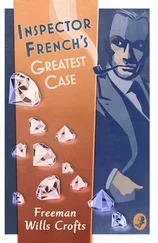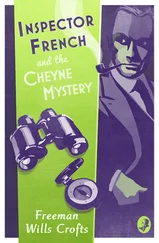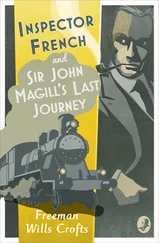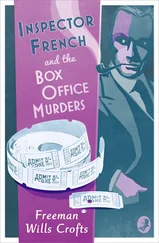‘Could he have passed in without your seeing him?’
‘Oh, yes, he might have done so when I was writing or at the back of the office.’
‘You weren’t here when he was leaving for the train?’
No, I closed up about eleven and went to bed.’
‘When you saw him at five can you tell me how he was dressed?’
‘A grey flannel suit and a grey Homburg hat. He always wore grey flannel.’
Vandam produced his sheaf of photographs.
‘By the way, is Mr Swayne among these?’
Bragg seemed surprised as he took the cards.
‘That’s the man,’ he said, immediately picking out Swayne’s portrait. ‘Do you not know him?’
‘Never saw him in my life,’ Vandam declared. ‘I think, Mr Bragg, that’s all I want from you. I’m very greatly obliged, I’m sure. Now could I see that waiter who came down with the bill?’
The clerk gave a rapid order on his desk telephone, and presently an elderly, reliable looking man entered. He stated that he recalled the events of the Wednesday night clearly, and answered all Vandam’s questions without hesitation.
He had been on late duty, it seemed, that evening, and about half-past ten the bell rang from No. 78, Mr Swayne’s room. Jackson, the waiter, had immediately answered the bell, and had found Swayne in his room, packing a suitcase. He had evidently just come in, for he was still wearing his grey Homburg hat.
‘Oh,’ he said, ‘waiter, I wish you’d get me my bill.’ Jackson was moving off when Swayne called him back. ‘By the way, what time do you make it?’ They compared watches and agreed that it was exactly twenty-eight minutes past ten. ‘I have to catch the early morning train, and I forgot to check my watch,’ Swayne explained, continuing, ‘I wish you’d see that the night porter understands about getting me up in the morning, and that a taxi is arranged for. I told him, but I’d like to make sure it’s all right.’ Jackson then went for the bill. It amounted to four pounds sixteen, and Swayne gave him a five-pound note, telling him to keep the change. Jackson took the money to the office, got the bill receipted, and returned with it to the bedroom. Having assured Swayne that the arrangements for the morning were in order, he left the receipted bill and withdrew, and that was the last he had seen of the visitor.
Vandam slipped a couple of shillings into the man’s hand, thanked him, and turned to the clerk.
‘Now, if I might see that night porter, Mr Bragg,’ he suggested.
‘Send Hitchcock here, will you,’ Bragg called after the retreating waiter, and presently a second man appeared, this time small, dark and alert looking, not, indeed, unlike Vandam himself.
He had been, he stated, on duty as porter on the previous Wednesday night. He had wakened Mr Swayne and seen him start for the Capetown train.
‘Just tell me all you know about his going,’ Vandam asked.
‘I came on duty at ten, sir,’ the man answered, ‘and, as usual, I looked at the board to see if there were any early calls. I saw No. 78 was to get knocked at 3.00. “Him for the south train?” I asked my mate, the porter that I was relieving. “Sure,” he says. “Is he having a taxi?” I asked, and Morton, that’s my mate, said, “Yes,” that he had fixed it up. Then at three o’clock I knocked him and brought him up a cup of tea. “Come up for my stuff in twenty minutes,” he says. I did so, and carried his baggage down to the taxi. He left the hotel about five-and-twenty minutes past three.’
‘Did he speak to you when he was going out?’
‘He just said, “Well, goodbye, porter. Thanks for your help,” and he gave me a tip.’
‘Did you notice anything peculiar about his manner?’
The porter seemed somewhat surprised at the trend of the questions, but he answered unhesitatingly:
‘No, sir, I can’t say I did.’
‘Now, porter,’ Vandam went on, ‘remember we’re talking confidentially and don’t jump to conclusions from what I’m asking you. Would it have been possible for Mr Swayne to have left the hotel between 10.30 and 3.25 that night without having been seen?’
Both Bragg and the porter stared, and the latter shook his head.
‘It couldn’t have been done,’ he said decisively. ‘Not anyway at all. No one could have got in or out without my knowing.’
‘Just explain why, will you?’
‘Why, because they couldn’t,’ retorted the porter, who was getting a trifle nettled by the interrogation. ‘The side doors were all locked at dark, and from I came on duty at ten until the front door was locked at 11.30 I was there in the box the whole time, and nobody could have passed in or out without my seeing them. And from 11.30 no one could have got the door open without me. I saw Mr Swayne coming in. He came in about half-past ten, but he didn’t go out again, not until he left at 3.25 to catch his train.’
‘If you’re really keen on that point,’ interjected Bragg, who was evidently growing more and more interested, ‘it happens you can get some other evidence. Our electrician was working in 70 corridor on that night—that is just outside Mr Swayne’s rooms. Some of the bells had gone wrong, and it’s not convenient to have the boards up in the daytime. He could tell you if anyone came out of 78 during the night.’
‘Thanks, I should like to see him,’ Vandam agreed, then turned back to the porter. ‘By the way, can you tell me who drove the taxi that night?’
‘Jan Voogdt. He drives for Gresham Bros. of ’sGravenhagen Street.’
The porter was dismissed in his turn, and the electrician entered. Him Vandam approached rather differently, asking him to give a list of all the people whom he could remember having passed through the corridor on that Wednesday night. The man would have made an ideal witness, being evidently very observant and having all his facts clear and sharp-edged. He had begun work shortly after eleven, and from that until the night porter arrived at 3.00 no one entered or left No. 78. He described accurately the porter’s visit with the tea, his exit in a couple of minutes empty-handed, Swayne’s departure some twenty minutes later, and the carrying down of the luggage.
As far as it went, this was conclusive, but it didn’t satisfy Vandam. Under Bragg’s guidance he interviewed a number of other servants, chambermaids, lift boys, shoeblacks, all of whom confirmed as far as they were able what he had already heard, and all of whom picked out Swayne’s photograph from among the others. Then he asked to see No. 78, made certain that no one could have left through the windows—they were thirty feet up and overlooked the main street—went into the question of fire escapes, and at last finally and completely satisfied himself that Swayne had been in the building between half-past ten on the Wednesday night and twenty-five minutes past three on the Thursday morning.
‘Now for Gresham Bros., the car owners,’ thought Vandam as, after making the polite clerk a friend for life by promising to explain the business later and telling him how much he had helped him, he left the Bellevue and turned eastwards towards ’sGravenhagen Street.
Here, after some trouble, he found Jan Voogdt. The driver remembered the occasion in question. He had driven the fare he had picked up at the Bellevue at 3.25 to the railway station. A porter had there taken charge of the traveller’s luggage. He knew the porter and remembered his name. He was a coloured man called Christmas White.
Vandam, methodical and painstaking as ever, went on to the station and looked up White. Like the taxi man, the latter also remembered the midnight passenger. He had arrived in Jan Voogdt’s taxi, and he, White, had put his luggage into a sleeping berth on the train. The traveller had had his ticket and the berth was reserved for him.
Читать дальше
